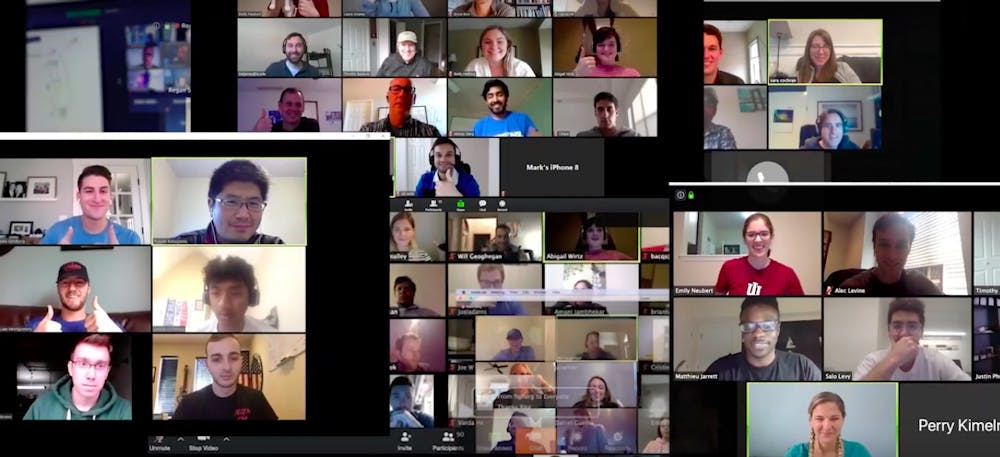IU professors in the Kelley School of Business organized an initiative to encourage people from around the world to pitch ideas to combat problems arising from the coronavirus pandemic, such as the lack of medical supplies, access to groceries, and the challenges of online learning.
Regan Stevenson, assistant professor of entrepreneurship and management, along with five of his colleagues announced an open call for ideas on social media March 18, according to an IU press release. He said anyone who wanted to be a part of the initiative, including students and professors from around the world, could participate.
Stevenson said the project, Idea Sprint Weekend Against COVID-19, was intended to run March 20 to 22. The goal was for teams to submit ideas earlier in the week and after seminars and workshops, have a prototype of their idea ready March 22. Participants worked on the team that interested them the most. By the end of the weekend, more than 200 people had participated and produced 20 videos pitching their ideas.
“A lot of people around the world feel helpless, and one of our main goals is to take that helpless energy and put it into something constructive,” Stevenson said.
Assistant professor of strategy and entrepreneurship Matthew Josefy said the goal of the initiative was to focus on working together to make a difference for people in their communities.
Josefy said he and the initiators of the project identified five categories they wanted to address which included the needs of medical professionals, communities, supply chains, local businesses and educational institutions.
He said he's checking in with the teams once a week to hear about their progress and offer guidance.
Stevenson said information about the projects was sent to several potential funders. The initiative organizers are also looking for grant funding from inside or outside IU for the teams that are still working.
Dr. Amani Jambhekar, a cancer surgeon based in Houston, said she came up with the idea to centralize donations for personal protective equipment so hospitals can get the supplies they need. Jambhekar, also a student in the Kelley School of Business online MBA program, said she is working on building a distribution network so doctors and nurses in all 50 states and many major cities can take and distribute donations.
Jambhekar said her project already has donors through the Kelley School of Business, as well as other professors who want to donate masks. She said her team has been working with IU marketing and is reaching out to athletes and celebrities to get the word out and encourage the public to donate.
She said her colleagues, herself and other medical influencers have started using the hashtag #RealHeroesNeedMasks on their personal pages.
“It’s inspiring to see how committed people are to trying to make a difference for their healthcare providers on the front lines,” Jambhekar said.
Second year MBA student Sonam Vashist said her team created the GroceryBox project, a donation-based model for grocery delivery.
The idea is to assemble a box of basic groceries someone might need in a week, sourced from a grocery store. People would be able to order a box over the phone and drive through a lane in the grocery store’s parking lot where volunteers would place the box in the person’s trunk to minimize physical contact.
Vashist said some people may want to pay for their boxes rather than accept donations, so individuals will have the option to sponsor other boxes or pay for their own. Their idea is lacking traction so far, but she said the team has been talking with an investor based in Bloomington and have a call scheduled with the manager of Kroger to try to implement their plan.
“It was a good distraction from all the sadness and all the panic,” Vashist said. “It was a weekend of positivity.”
“Many of our ideas are recognizing that some of the effects of COVID-19 are going to be longer lasting and far-reaching,” Josefy said.




